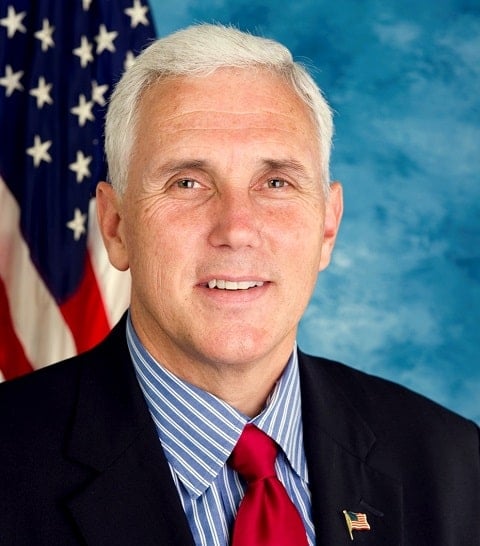
Lambda Legal has blasted Indiana lawmakers' latest efforts at introducing LGBT protections in the state.
Yesterday, state Senate Republicans introduced legislation that would provide protections for LGBT people against discrimination in housing, employment and public accommodations.
However, exemptions to the legislation include:
- Schools, employers and others could determine their own restroom policies for transgender people
- Businesses with less than four employees could refuse wedding services to same-sex couples
- Religious-affiliated adoption agencies could reject prospective same-sex parents.
Lambda Legal has since issued an open letter to Governor Mike Pence (above) which voices concern that “half measures, such as amending Indiana's employment discrimination law but not its laws banning similar discrimination by service providers such as hotels or restaurants, or omitting protection from discrimination for transgender people would be completely unacceptable.”
Although Senate President Pro Tempore David Long, R-Fort Wayne said the legislation “is an attempt to balance civil rights and religious liberty,” some LGBT activists say it treats sexual orientation and gender identity differently than other protected classes.
 Jennifer Pizer (right), law and policy project director at Lambda Legal, said:
Jennifer Pizer (right), law and policy project director at Lambda Legal, said:
“This bill is a wolf in sheep's clothing, This doesn't protect LGBT people – it is a road map for discrimination against LGBT people.
“It aims to guarantee the right of some medical, social services and other institutions to discriminate against married same-sex couples, and to do so with taxpayer dollars. It aims to write separate, lesser protections for LGBT people into state law.”
However, despite the possibility for discrimination built into the legislation, some religious conservatives have voiced concerns that it still goes too far by forcing employers to “choose government or god,” says tea party organizer Monica Boyer.
According to a new poll, 55 percent of Indiana voters indicated support for the state's anti-discrimination, 33 percent are opposed, while 12 percent are unsure. Forty-seven percent of respondents said they would be more likely to support a gubernatorial candidate who backed the expanded protections.
(Jenny Pizer image via LinkedIn)



